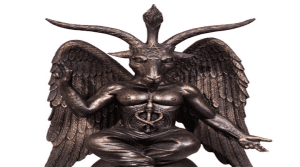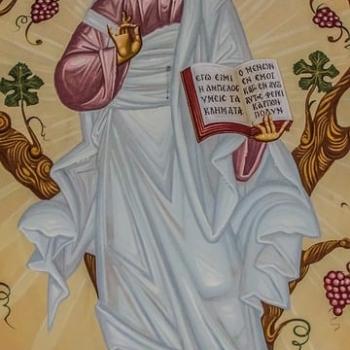
Perhaps the most famous work of the English artist John Martin is Satan Expelled from Heaven. As the title of the work suggests, Martin depicts Satan and his followers being evicted from Heaven as punishment for their rebellion against God.
While the reality of angels and demons is widely accepted in Christianity, I would like to examine Satan within the context of free will. I will begin by exploring what Catholicism claims about angels, whether these creatures possess free will, and, if they do, the nature of that will. Finally, I will address why God would create angels capable of warring against Him.
In drawing on Scripture, Catholicism adheres to an ontological dualism. That is to say that Catholicism asserts that there exist two types of substances or things in the universe: spiritual and material.
Angels, like God, are composed of a purely spiritual substance. On the other hand, humans are composite creatures made up of a spiritual soul and a material body. Demons share the same traits as angels in that they are pure spirits.
Since God creates all things by virtue of His intellect, a thing is more like God the more that its nature is intellectual. Moreover, since angels possess the beatific vision, which is the greatest good for a created being, angels can be said to exist at a “higher plane” than human beings. The difference between angels and demons is that where angels serve God, demons now serve Satan. Since Satan and his followers have been “hurled down,” they are considered fallen angels. (See Revelation 12:7–10).
Now, angels and demons are pure spirits possessed of a rational nature, and to be rational includes the power of free will. Since angels and demons are rational creatures, they must be said to possess the capacity to act without compulsion from within or coercion from without. It is the faculty of an intelligent being to act or not act, to act this way or another way. Indeed, it is only owing to the free will capacity of angels that they can rebel against the will of God and, so doing, become demons.
As in human beings, the capacity of angels to act of their own accord leads to the problem of free will and an omniscient God. The problem can be formulated in this way. Can certain creatures like humans and angels be said to have free will if an omniscient God knows what the creature will do?
The history of philosophy and theology is replete with efforts to address this problem. A Catholic solution to the problem of free will is predicated on a correct understanding of eternity and how God views history. God is eternal. That is to say that God does not exist in time; in fact, God is the author of time, much as He is the author of all creation.
The effect of God’s existence in eternity is that God “sees” all of history simultaneously. This fact provides the solution to the apparent contradiction between God’s omniscience and human free will. Since God “sees” from eternity, He is considered omniscient. Since every human action occurs in time, human free will remains intact.
At first glance, this solution appears only to address the problem of human free will. However, it is possible to apply the same principles to angels. To do so, we must first recognize that angels are not eternal, only immortal. This is an important distinction. The fact that angels are not eternal means they are creatures (created beings). As creatures, they have natures created by God, natures that include the capacity for free will. However, as beings within God’s created order, their free will is not beyond the knowledge of God.
All of this leads to the vexing question: why would God create angels with free will, a free will capable of rebelling against Him?
It must first be observed that in the absence of free will, there can not be any concept of morality, ethics, or even salvation. Both morality and ethics exist on the foundation of judgment. The judgment must be “free” if it is to have any meaning. The lack of free will in an angel or person would mean they could not act in any manner God had not already predetermined. Such a creature would be an automaton and in no way a free agent.
However, perhaps the Divine nature is the most fundamental reason God created creatures capable of acting against Him. Scripture informs us that God is love (1 John 4:16). Within the context of theology, love is not an emotion. Instead, love entails willing the good of another. Now, something can only be willed if a choice exists. Said differently, one must choose to will the good of another; one must choose to love.
Moreover, if we recognize the contingent nature of the universe, we see that God has created out of His nature, which is love. Everything created is contingent on God for its creation and continued existence.
If it is true that God has created out of love, and if it is also true that it is the nature of love to seek reciprocity, then we can infer that God desires the love of His creation. Finally, if love is a choice, it is dependent on free will to be actualized.
Therefore, it may be argued that God created particular creatures with the capacity to know something of their Creator and the free will to choose to return the love of God. The fact that the Devil (and frequently human beings) have misused free will does not diminish the inherent goodness of free will. Said differently, “abusus non tollit usum.” (The abuse of something does not preclude its good).
While it is precarious to claim to know the mind of God, it seems evident that God deemed the existence of creatures possessing free will (such as the Devil) worth the risk of those creatures using free will for evil.













